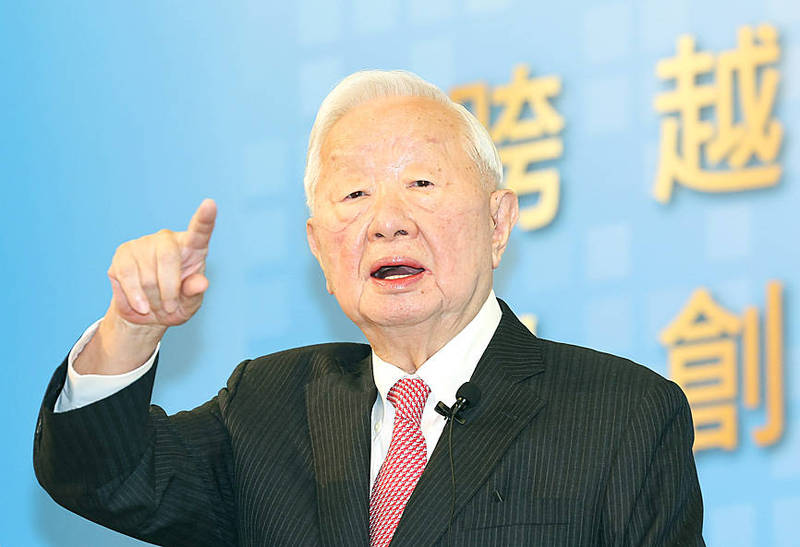《TAIPEI TIMES》Economic rivalry ended globalization, Chang says

Taiwan Semiconductor Manufacturing Co founder Morris Chang speaks at an event organized by the Chinese National Association of Industry and Commerce in Taipei yesterday. Photo: CNA
NEW DEFINITION: Governments now allow foreign investments only if they do not harm their national security and industry leadership, Morris Chang said
By Crystal Hsu / Staff reporter
Taiwan Semiconductor Manufacturing Co (TSMC, 台積電) founder Morris Chang (張忠謀) yesterday said that national security concerns and economic competitiveness have smothered globalization as the US-China trade dispute pans out.
Chang made the remark during a speech on globalization at the Taipei-based Chinese National Association of Industry and Commerce.
“The world has redefined globalization as allowing domestic companies to make profits abroad, and allowing foreign industries and services to enter the home country without harming its national security and [its] current or future technological and economic leadership,” Chang said, asking the audience if globalization can stay alive under the circumstances.
The 91-year-old industry veteran had earlier pronounced globalization “dead” amid the US-China technology competition.
Chang defined globalization as a period when countries endeavored to pursue profit and undertook commercial risks, regardless of borders.
Experts and academics at the time viewed the world as “flat” and the trend reached the optimal state in 2010, still far from the peak, Chang said.
Globalization had positive influences — such as lifting billions of people out of poverty and improving the average standard of living in almost every country, Chang said.
However, it also had negative effects, such as worsening the imbalanced distribution of wealth, he said.
Decades ago, a CEO at his former employer Texas Instruments could receive US$16 million upon retirement, but today CEOs earn more than that in a single month, widening the income gap among ranks, Chang said.
At the same time, globalization weakened the middle class in many countries by eliminating jobs, he said, adding that US steel, auto and garment makers moved their manufacturing facilities overseas, leaving many unable to share the benefits of globalization.
Globalization has led to a Thucydides trap, an apparent tendency toward war when an emerging power threatens to displace an existing great power as a regional or international hegemon, Chang said, referring to China and the US.
The US has introduced trade restrictions against China to secure its own military and economic leadership, while seeking to weaken its rivals’ competitiveness, which is at odds with globalization, he said.
Globalization is built on the foundation of the division of labor in line with comparative advantages among players who cooperate, but national security and economic and technology leadership have taken precedence over other concerns, Chang said.
That explains why the US and China have assigned more importance to competition than cooperation, he said.
新聞來源:TAIPEI TIMES
















